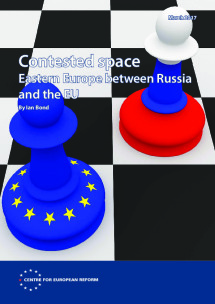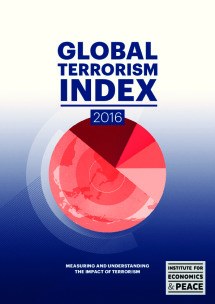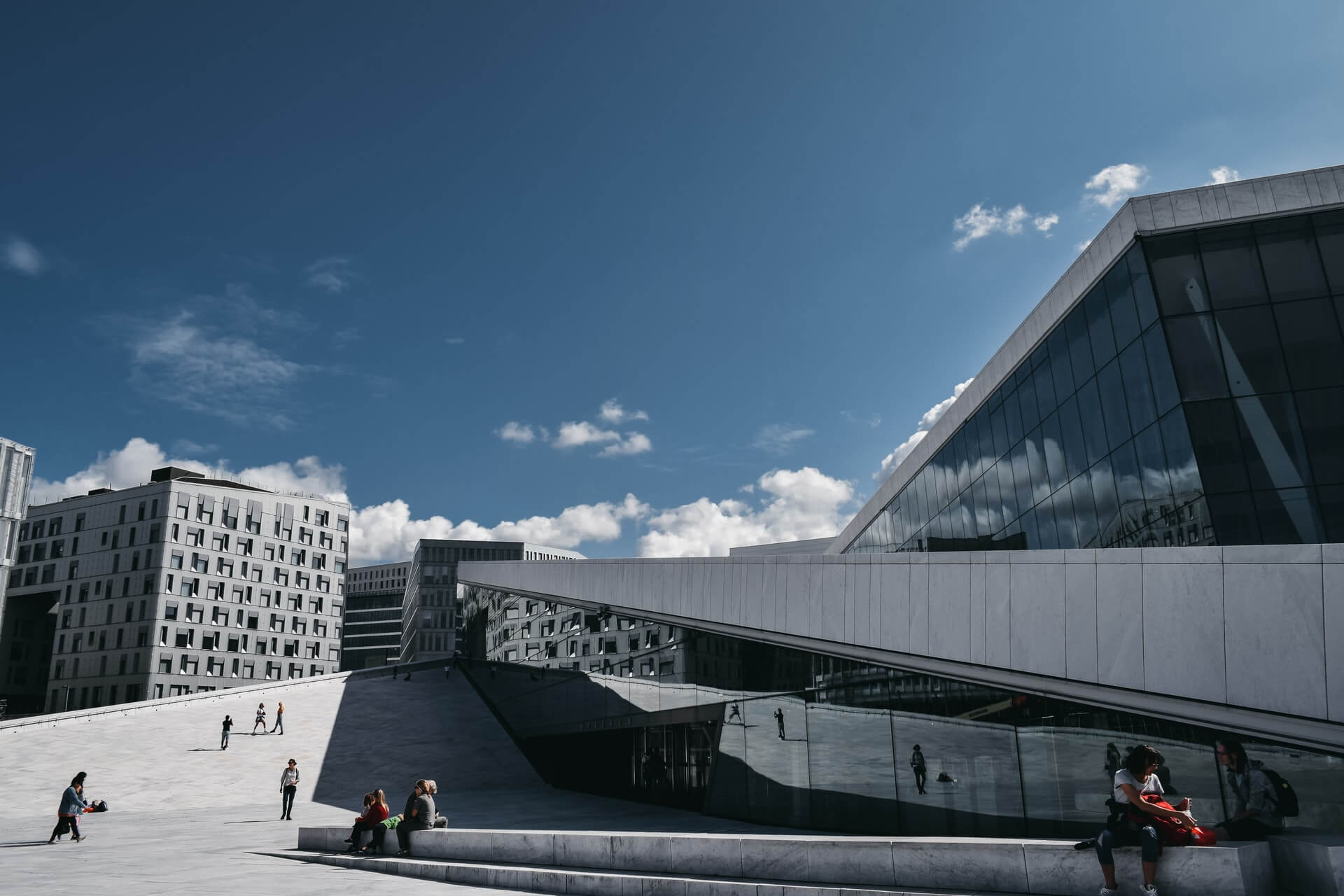Belarus IndicatorsMore
Belarus 

Happiness
5.53
0 unhappy, 10 happy
2020
The Happiness ranking is part of the World Happiness Report. The country scores are based on a survey in which respondents evaluate the quality of their current lives on a scale of 0 to 10.
Compare
Belarus 

Life expectancy
74.23
years
2019
Life expectancy at birth indicates the number of years a newborn infant would live if prevailing patterns of mortality at the time of its birth were to stay the same throughout its life. Measure: years, Source: The World Bank
Compare
Belarus 

Political stability
-0.73
-2.5 weak, 2.5 strong
2020
The Political Stability Index and Absence of Violence/Terrorism measures perceptions of the likelihood that the government will be destabilized or overthrown by unconstitutional or violent means, including politically-motivated violence and terrorism. Measure: points; Source: The World Bank
Compare
Belarus 

Political rights
7
7 weak, 1 strong
2020
The Political Rights ratings evaluate three categories: electoral process, political pluralism and participation, and the functioning of government. The index ranges from 1 (strong rights) to 7 (weak rights). Measure: points; Source: The Freedom House
Compare
Belarus 

Civil liberties
6
7 weak, 1 strong
2020
The Civil Liberties index evaluate the following: freedom of expression and belief, associational and organizational rights, rule of law, and personal autonomy and individual rights. The rating ranges from 1 (strong liberties) to 7 (no liberties). Measure: points; Source: The Freedom House
Compare
Belarus 

Corruption
47
100 = no corruption
2020
The Corruption Perceptions Index is an indicator of perceptions of public sector corruption, i.e. administrative and political corruption (based on information from surveys and assessments of corruption, collected by a variety of reputable institutions). Measure: points; Source: Transparency International
Compare
Belarus 

Population
9.40
Million
2020
Total population is indicated in Millions and is based on the de facto definition of population, which counts all residents regardless of legal status or citizenship. The values shown are midyear estimates. Measure: million; Source: United Nations Population Division
Compare
Belarus 

Population growth
-0.20
% growth / year
2020
Annual population growth rate for year t is the exponential rate of growth of midyear population from year t-1 to t, expressed as a percentage . Population is based on the de facto definition of population, which counts all residents regardless of legal status or citizenship. Measure: percent; Source: United Nations Population Division
Compare
Belarus 

Population density
46
People per square km
2020
Population density is midyear population divided by land area in square kilometers. Population is based on the de facto definition of population, which counts all residents regardless of legal status or citizenship. Measure: people per square km; Source: Food and Agriculture Organization
Compare
Belarus 

Urban population
79.48
% of total population
2020
Urban population refers to people living in urban areas as defined by national statistical offices. Measure: percent; Source: United Nations Population Division
Compare
Belarus 

Migrant population
11
% of total
2015
International migrant stock is the number of people born in a country other than that in which they live. It also includes refugees. Measure: percent; Source: United Nations Population Division
Compare
Belarus 

Economic growth
-0.90
% of GDP
2020
Economic growth is intended as the annual percentage growth rate of GDP at market prices based on constant local currency. Measure: percent; Source: The World Bank
Compare
Belarus 

Foreign Direct Investment
1.98
% of GDP
2019
Foreign direct investment are the net inflows of investment to acquire a lasting management interest in an enterprise operating in an economy other than that of the investor (new investment inflows less disinvestment). Measure: percent; Source: The World Bank
Compare
Belarus 

Exports
61.90
% of GDP
2020
Exports of goods and services represent the value of all goods and other market services provided to the rest of the world. Measure: percent; Source: The World Bank
Compare
Belarus 

Government debt
48.05
% of GDP
2020
Government debt includes domestic and foreign liabilities such as currency and money deposits, securities other than shares, and loans. It is the gross amount of government liabilities reduced by the amount of equity and financial derivatives held by the government.
Compare
Belarus 

Capital investment
26.27
% of GDP
2020
Capital investments are fixed assets including for example land improvements, plant, machinery, construction of roads, railways, schools, offices, hospitals, private residential, commercial and industrial buildings, etc. Measure: percent; Source: The World Bank
Compare
Belarus 

Inflation
5.5
% yearly change
2020
Inflation as measured by the consumer price index reflects the annual percentage change in the cost to the average consumer of acquiring a basket of goods and services that may be fixed or changed at specified intervals, such as yearly. Measure: percent; Source: The World Bank
Compare
Belarus 

R&D
0.60
% of GDP
2018
Gross domestic expenditures on research and development (R&D), expressed as a percent of GDP. They include both capital and current expenditures in the four main sectors: Business enterprise, Government, Higher education and Private non-profit. Measure: percent; Source: The United Nations
Compare
Belarus 

Shadow economy
32.37
% of GDP
2015
The shadow economy as percent of total annual GDP. Source: Leandro Medina and Friedrich Schneider (2018).
Compare
Belarus 

Health spending
5.64
% of GDP
2018
Level of current health expenditure expressed as a percentage of GDP including healthcare goods and services consumed during each year but does not including capital health expenditures such as buildings, machinery, IT and stocks of vaccines for emergency or outbreaks. Measure: percent; Source: The World Bank
Compare
Belarus 

Education spending
4.95
% of GDP
2020
General government expenditure on education is expressed as a percentage of GDP. It includes expenditure funded by transfers from international sources to government. General government usually refers to local, regional and central governments. Measure: percent; Source: UNESCO
Compare
Belarus 

Military spending
1.25
% of GDP
2020
Military spending includes expenditure on peacekeeping, defense ministries, paramilitary forces, space activities, military and civil personnel, procurement, military research and development, and aid. Measure: percent; Source: Stockholm International Peace Research Institute
Compare
Belarus 

Unemployment
4.77
% of labor force
2020
Unemployment refers to the share of the labor force that is without work but available for and seeking employment. Measure: percent; Source: The World Bank
Compare
Belarus 

Females unemployment
3.50
% of female labor force
2019
Female unemployment refers to the share of the female labor force that is without work but available for and seeking employment. Measure: percent; Source: The World Bank
Compare
Belarus 

Males unemployment
5.88
% of male labor force
2019
Male unemployment refers to the share of the male labor force that is without work but available for and seeking employment. Measure: percent; Source: The World Bank
Compare
Belarus 

Youth unemployment
10.63
% of 15-24 labor force
2019
Youth unemployment refers to the share of the labor force ages 15-24 without work but available for and seeking employment. Measure: percent; Source: The World Bank
Compare
Belarus 

Cost of starting a business
0.50
% of income per capita
2019
The cost of starting a business indicator includes all official fees and fees for legal or professional services if such services are required by law. The company law, the commercial code, and specific regulations and fee schedules are used as sources for calculating costs. Measure: percent; Source: The World Bank
Compare
Belarus 

Tax rate
53.30
% of commercial profits
2019
Total tax rate measures the amount of taxes and mandatory contributions payable by businesses after accounting for allowable deductions and exemptions as a share of commercial profits. Personal income tax, VAT, sales taxes or goods and service taxes are excluded. Measure: percent; Source: The World Bank
Compare
Belarus 

Number of taxes paid by businesses
7
2019
Tax payments by businesses are the total number of taxes paid by businesses, including electronic filing. The tax is counted as paid once a year even if payments are more frequent. Measure: taxes; Source: The World Bank
Compare
Belarus 

Patent applications
298
by residents
2019
Patent applications are worldwide patent applications filed through the Patent Cooperation Treaty procedure or with a national patent office for exclusive rights for an invention. A patent provides protection for the invention to the owner of the patent for a limited period, generally 20 years. Measure: patent applications; Source: The World Intellectual Property Organization
Compare
Belarus 

Internet users
85.09
% of population
2020
Internet users are individuals who have used the Internet (from any location) in the last 3 months. The Internet can be used via a computer, mobile phone, personal digital assistant, games machine, digital TV etc. Measure: percent; Source: The World Bank
Compare
Belarus 

Land area
202980
sq. km
2020
Land area is a country's total area, excluding area under inland water bodies, national claims to continental shelf, and exclusive economic zones. In most cases the definition of inland water bodies includes major rivers and lakes. Measure: sq. km; Source: Food and Agriculture Organization
Compare
Belarus 

Agricultural land
84530
sq. km.
2018
Agricultural land refers to the share of land area that is arable, under permanent crops, and under permanent pastures. Measure: sq. km; Source: The World Bank
Compare
Belarus 

Forest area
87676.0
sq. km
2020
Forest area is land under natural or planted stands of trees of at least 5 meters in situ, whether productive or not, and excludes tree stands in agricultural production systems (for example, in fruit plantations and agroforestry systems) and trees in urban parks and gardens. Measure: percent; Source: Food and Agriculture Organization
Compare
Belarus 

Precipitation
618
mm per year
2017
Average precipitation is the long-term average in depth (over space and time) of annual precipitation in the country. Precipitation is defined as any kind of water that falls from clouds as a liquid or a solid. Measure: mm per year; Source: Food and Agriculture Organization
Compare
Belarus 

Energy imports
86.78
% total energy use
2014
Net energy imports are estimated as energy use less production, both measured in oil equivalents. A negative value indicates that the country is a net exporter. Measure: percent; Source: The World Bank
Compare
Belarus 

Oil production
34.37
thousand barrels / day
2020
Oil production. Measure: thousand Barrels Per Day; Source: The U.S. Energy Information Agency
Compare
Belarus 

Renewable power capacity
0.43
million kilowatts
2020
Total capacity to produce electricity from renewable resources in million kilowatts. Source: The U.S. Energy Information Administration
Compare
Belarus 

Carbon dioxide emissions
6.28
metric tons per capita
2018
Carbon dioxide emissions are those stemming from the burning of fossil fuels and the manufacture of cement. They include carbon dioxide produced during consumption of solid, liquid, and gas fuels and gas flaring. Source: The World Bank. Measure: metric tons; Source: The World Bank
Compare
Belarus 

ATMs
55.86
per 100,000 adults
2020
Number of ATMs per 100,000 adults. Automated teller machines are computerized telecommunications devices that provide clients of a financial institution with access to financial transactions in a public place. Measure: ATMs per 100,000 adults; Source: The World Bank
Compare
Belarus 

Homicides
3.6
per 100,000 people
2014
Number of homicides per 100,000 people per year. Source: The UN office on drugs and crime
Compare
Belarus 

Robberies
26
per 100,000 people
2014
Number of robberies per 100,000 people per year. Source: The UN office on drugs and crime
Compare
Belarus 

Suicides
21.20
per 100,000 population
2019
Suicide mortality rate is the number of suicide deaths in a year per 100,000 population. Source: The World Health Organization
Compare
Belarus 

Prisoners
343
per 100,000 people
2017
Number of prisoners per 100,000 people. Source: The UN office on drugs and crime
Compare

































































































![[Eurocities] Lyon puts Housing First](/upload/videos/eR_5lt2mFIY.jpg)








![[Eurocities] Lyon puts Housing First](/upload/videos/tzZJWwfwBK8.jpg)














































![[EUROCITIES] Preventing evictions and homelessness - The story of Andreas & Franziska in Vienna](/upload/videos/ERtcEVlsTVQ.jpg)
![[EUROCITIES] Preventing evictions and homelessness - The story of Andreas & Franziska in Vienna](/upload/videos/UNom7JeU_G4.jpg)








































